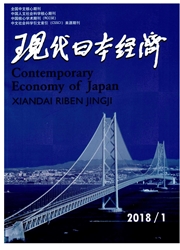

 中文摘要:
中文摘要:
以日收益率作为分析对象,考察了日经225指数期货推出对日本股票市场指数波动性的影响,研究样本期间为1984.01.04~2009.09.30,分别采用EGARCH、TGARCH和DCC-GARCH3种模型对日收益率的条件方差及市场波动性之间的关系进行实证分析,研究结果表明:(1)日经225指数期货在大阪证券交易所(OSE)的推出加剧了股票现货市场的波动性;(2)好坏消息对股指波动率的影响存在非对称性,即利空消息对收益率波动率的影响比利好消息大;(3)日经225指数期货与标的指数之间的波动性具有较强的联动性和传递性,且2007年次贷危机的爆发加强了两者间的相关性。
 英文摘要:
英文摘要:
This paper studies the effects of the Nikkei225 stock index futures on the volatility of the underlying spot market.Using daily return series from Jan 4,1984 to Sep 30,2009,we test the three models of EGARCH,TGARCH and DCC-GARCH.The results indicate that (1) the introduction of the stock index futures in OSE increased the volatility of the spot market;(2) there exist asymmetric effects where bad news have more impacts on the volatility than good news;(3) the volatilities of the Nikkei225 index futures and the underlying spot market are highly correlated and interactive,and the 2007 subprime crisis adds the correlation of the volatilities.
 同期刊论文项目
同期刊论文项目
 同项目期刊论文
同项目期刊论文
 期刊信息
期刊信息
